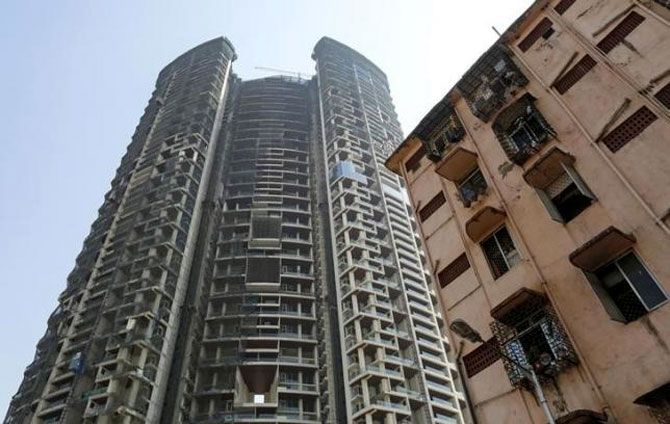 | « Back to article | Print this article |
The new real estate hubs could typically take between 5 and 10 years to develop depending on the state of economy of the city and the state.
 The largest chunk of spend in smart city projects will be in areas related to real estate, a new study has shown.
The largest chunk of spend in smart city projects will be in areas related to real estate, a new study has shown.
Investments in technology, which was seen as the backbone for the project, will be much lower.
While the Centre has allocated close to Rs 50,000 crore (Rs 500 billion) for Smart City Mission, the remaining expenses have to be met by states, local municipal bodies and the private sector.
A white paper, titled ‘Urban Makeover: Evolution or Revolution’, prepared by real estate consultancy RICS, in partnership with RICS School of Built Environment, Amity University, said that 89 per cent of the spend will go towards real estate and built environment such as urban development, housing, buildings and waterfront development.
Only seven per cent of the investment is allocated for technology infrastructure, while a mere four per cent has been marked for public services.
For the first 20 cities, 74 per cent of the investment is targeted towards area-based development. “About three-fourths of the investment is targeted towards compact areas within the city – subject to retrofitting, redevelopment or development of entirely new areas (greenfield); only one-fourths of the investment is targeted towards city-wide development,” the report said.
Compact area based developments are expected to make more capital investments into built environment, transport, energy and water/waste water management.
These four sectors alone make up for 95 per cent of the investment in compact area based development.
Transport projects, which include improvement of street sections, intelligent traffic management and public transport, make up for another fifth of the overall investment in compact area developments.
“We are working with central and state government bodies on various aspects and providing technical advice and international best practices, helping structure projects that will go into making smart cities and helping them tap into sources of finance from land and real estate assets on a sustained basis,” said Sachin Sandhir, global managing director - emerging business, RICS.
The report further said that development of new real estate hubs could typically take between five and 10 years to develop depending on the state of economy of the city and the state.
“This natural ‘phasing’ of development can potentially render a number of information-based services unviable in terms of business. Most smart city plans have not examined this aspect,” it stated in the report.
It further said that a key factor often ignored by urban development schemes in India is the underlying social complexities, which are deep-rooted in the society.
“A typical example is the low rate of success of internationally practiced examples of rent control in Berlin, earmarking of housing stock for the poor by private developers in Vienna or a strong public housing authority in Singapore – none of which could be adapted to the Indian context with positive results. In the context of smart cities, the area based development risks the possibility of becoming an exclusive enclave that keeps the poor out,” added Sandhir.